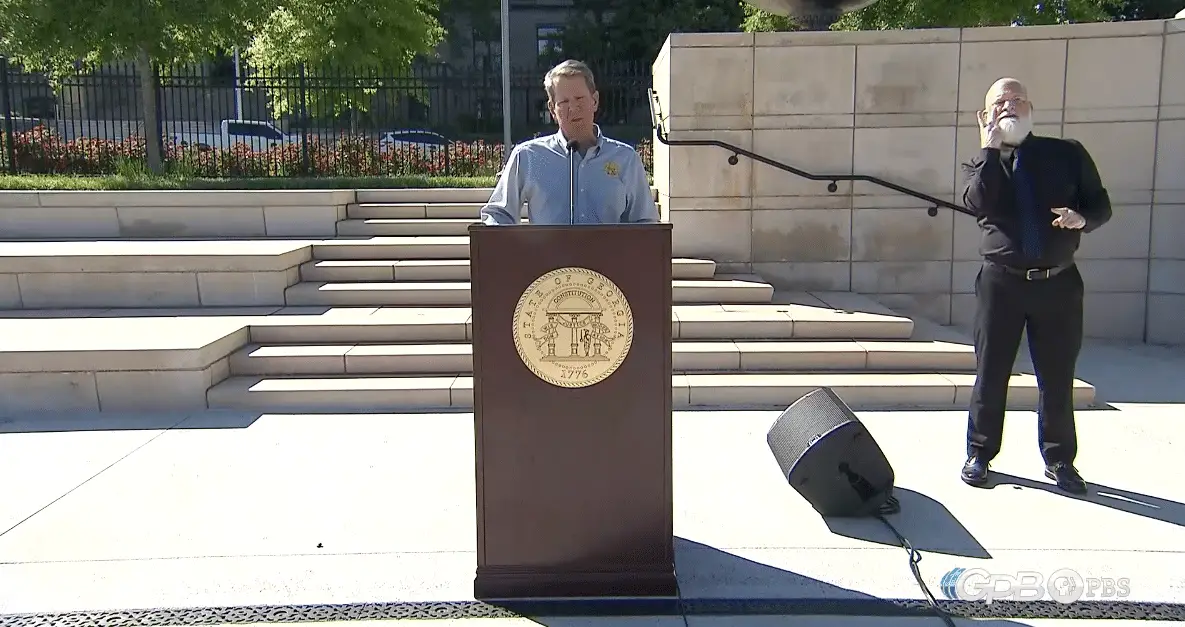The Gist: Georgia Gov. Brian Kemp is allowing some of the businesses that have been hit hardest by the coronavirus lockdown to re-open for business, but with guidelines and regulations in place to ensure the safety of patrons and employees and to prevent the spread of COVID-19.
Businesses: While gyms, hair salons, barber shops, tattoo parlors and bowling alleys will be allowed to re-open Friday, Dine-in restaurants, theaters and private social cubs will have to wait until Monday.
“The entities I am re-opening are not re-opening for business as usual,” Kemp said at a news conference Monday. “Each of these entities will be subject to specific restrictions including adherence to the minimum basic operations, social distancing and regular sanitation.”
Kemp said specific guidelines would be given over the course of the week, but gave examples of barbers wearing masks, taking extra care to wipe down chairs between customers and having customers wait in their cars instead of in waiting rooms.
Shelter-in-place still in effect: While the businesses are being allowed to re-open, they will not be open for business until May 1, after Georgia’s shelter-in-place order has expired. Kemp said the businesses would need time to hire and train employees, and that Georgians were still expected to shelter-in-place until the order expires April 30.
Reasoning: Kemp points to data from the department of Public Health showing that emergency room visits for flu-like illnesses are declining, documented COVID-19 cases have flattened and appear to be declining and emergency room visits are declining.
“By expanding our hospital bed capacity — including the temporary facility at the Georgia World Congress Center — we have the ability to treat patients without crisis care in hospital settings,” Kemp said. “Our proactive actions have reduced stress and strain on area hospitals as well as the communities and families that they serve.”
More Testing: As a part of efforts to start re-opening sections of Georgia’s economy, Kemp promised more testing would be made widely available statewide.
“Augusta University Health launched a telemedicine app as part of their comprehensive plan to screen, test, and treat Georgia patients through an algorithm designed by experts at the Medical College of Georgia,” Kemp said. “This app has enhanced public health while reducing exposure for our doctors, nurses, and medical staff. We are encouraging symptomatic Georgians to download the app this week and begin the screening process.”
Georgians can access the app by visiting AugustaHealth.org or downloading AU Health ExpressCare on your smartphone. You can also call (706) 721-1852.
What does this mean for the medically fragile residents?: Elderly and medically fragile residents will need to shelter in place at least through May 13, when Georgia’s Public Health Emergency declaration expires. Kemp said more details and guidance for Georgia’s medically fragile population would be released near the end of April.
What does it mean for students?: Georgia’s public schools will remain closed through the remainder of the school year, regardless of when businesses go back to work.

Thom Chandler
Thom Chandler is the editor of The Georgia Sun and has been writing, editing and managing websites and blogs since 1995. He is a lifelong Georgian and one of those increasingly rare Atlanta natives.


